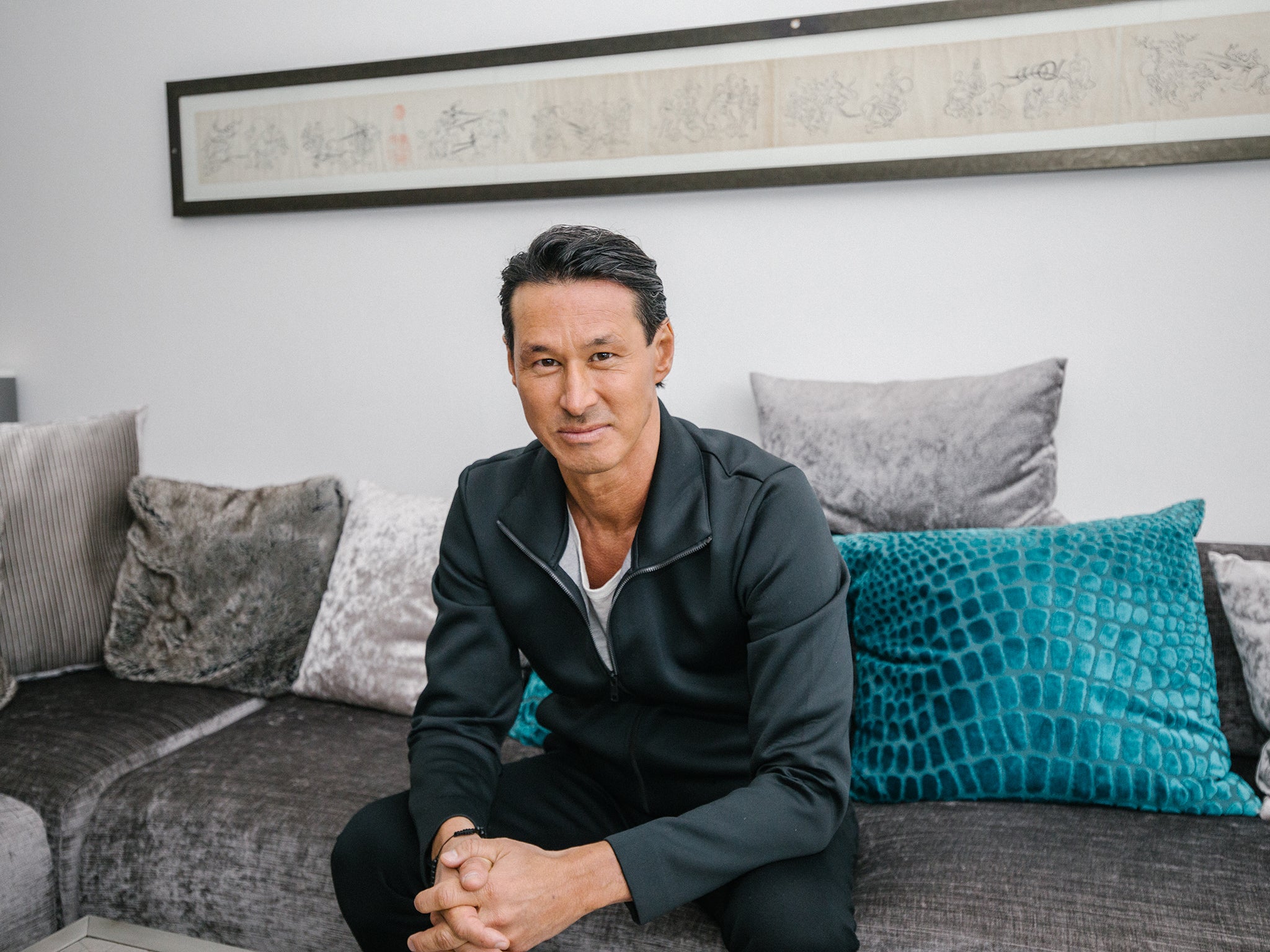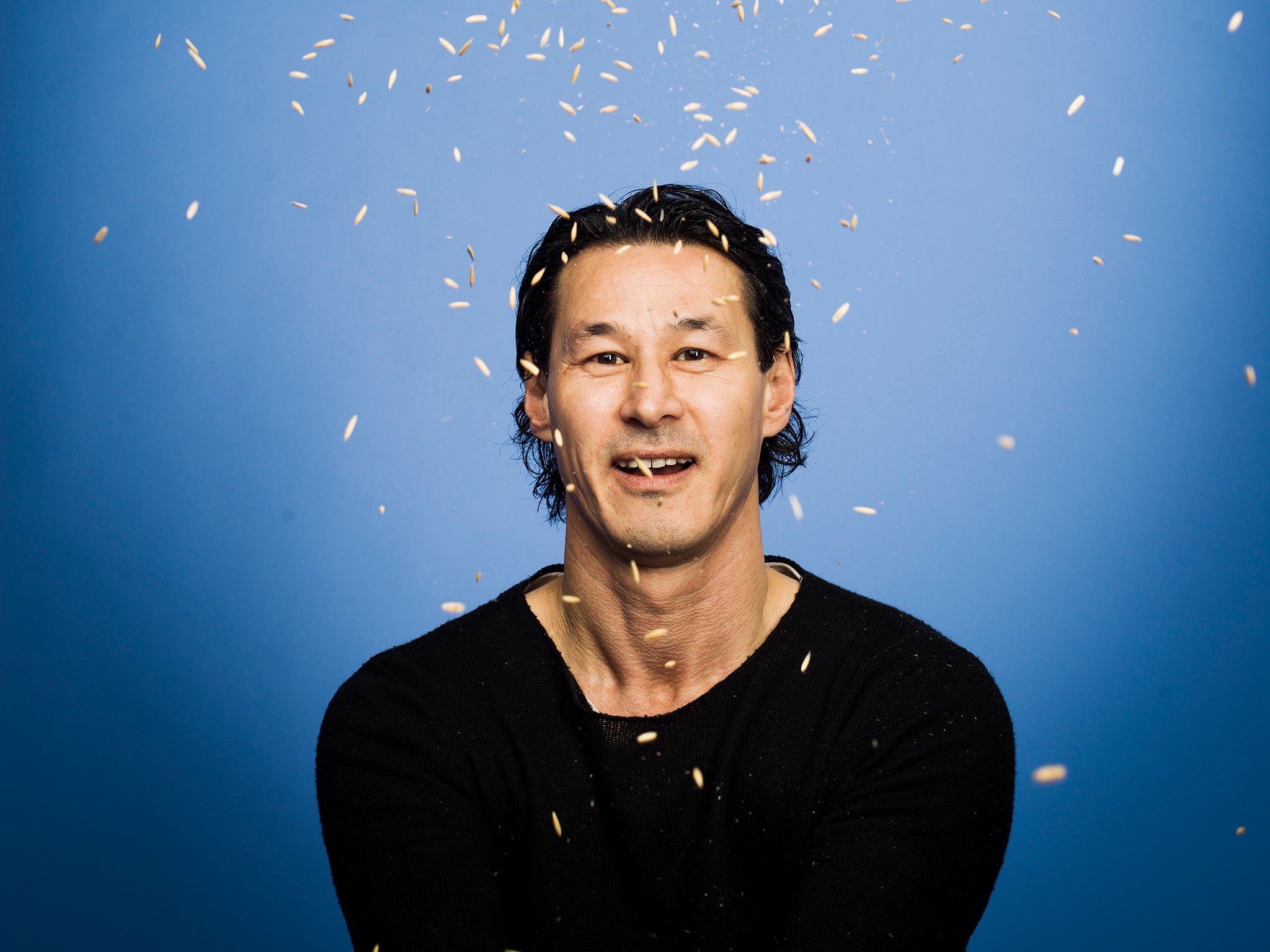Oatly CEO Toni Petersson: ‘If we get one person to give up cow’s milk, we’ve made a difference’
View From The Top: The milk industry is changing. We meet the man giving dairy a run for its money

Toni Petersson moves like a dancer or rockstar and looks amazingly young, slim, and fit for 52. “It’s half genes, half oats,” he explains. The CEO of Oatly is also half Swedish and half Japanese. He is polite about my Swedish, but fortunately his English is much better. “We’re the only company in the world that has been focused on liquid oats for over 25 years,” he says. In Sweden, the company has a range of oat-based products (“oatgurt”, ice cream, cold brew latte), here it sells oat milk, oat cream and oat creme fraiche.
I should declare an interest. I often have Oatly on my breakfast cereal. I’m a fan of plant-based milk. Petersson is having it in his tea in the lounge of the Langham Hotel in London.
“Sweden is the best place on earth,” says Petersson. “For a month and half.” But he reckons that it’s the struggle against the Nordic darkness which accounts for why “we’re fairly successful at creating great stuff”.
The brand wasn’t founded until 2001, but the story goes back to the 1960s. It was only then that we realised that drinking cow’s milk was something really rather peculiar. It was not normal. Most of the world suffers from lactose intolerance while, by sheer fluke, Europeans (as well, oddly enough, as the Maasai in Africa) have developed an immunity to it. The discovery was due to Swedish scientists carrying out research at the Lund University
The founder of Oatly, Rickard Öste, who was doing a PhD at Lund at the time, asked himself a simple question: why don’t we come up with a form of milk that is OK for us to drink and also better for the planet? “One,” as Petersson puts it, “that is designed for human beings rather than for baby cows.” They looked around the world for the answer, testing out rare rainforest flora, and finally found the answer right under their noses in Sweden, in the humble bowl of porridge. Oats were perfect for making milk because they liquidise easily.

Öste lodged the patent in 1993 and expected to sell the idea to big food manufacturers. But, as Petersson explains, “No one was interested. So they had to do it all themselves.”
Toni Petersson is a serial entrepreneur. Or he was. He came out with something shocking that I have never heard another businessman or woman dare to say. “Business is boring. Selling things – is that what life is all about?” He came to this devastating conclusion after setting up a string of businesses and nightclubs with his brother in Sweden. Then he sold them all off in 2004 and moved his family lock, stock and barrel to Costa Rica. Which might have been the end of a brilliant career except for one rather big thing: climate change. He hadn’t noticed it in Sweden, but now it really hit home, exposed as they were on the Costa Rican coast to extreme climatic phenomena. So, after five years abroad, he went back to Sweden, determined to work for an NGO to try to fix things.
Which is when Oatly came up. If you would like to follow the Toni Petersson formula for success, the way to go into a job interview is... not really wanting the job. “I knew nothing about the food industry,” he says. “And I had no intention of working in the food industry. That’s why they gave me the job. To scare the shit out of everybody else. I was a wildcard.” But he saw huge potential in the product. “It was unknown to 99 per cent of the people, but it was relevant to 99 per cent of the people,” he says.
Petersson reckons that starting from zero was an advantage. He had to redefine the company. “If you can define the reason for your existence, that’s what unites everyone.” He says that Sweden in the middle of winter is “hell – it’s cold and it’s dark”. Which means that you have to find a really good reason to wake up and get out of bed in the morning. He found it in a very simple message: “We need to make the world a better place.” It’s what he had been hoping to do on his return from Costa Rica – and he found a way of achieving it in Oatly.
He says there are two parts to the business: one is the sine qua non of any functioning business – selling a commodity. The other is changing the world by changing people’s minds. “But they are completely aligned,” he says. “If we can get someone to drink a glass of Oatly rather than cow’s milk, then we’ve made a difference. Selling more is better, but it’s better for everyone.” With oats in place of cows, greenhouse gas emissions (cows are big on that) come down by 80 per cent, land usage by 79 per cent, and energy consumption by 60 per cent.
These are the figures that Petersson quotes me, but they’re from a reliable source and everything he says is underpinned by hard science. The Oatly HQ, outside Malmö in the south of Sweden, is, of course, carbon neutral. But their main aim is to make agriculture more sustainable. To this end, they have put their theories to the test by financing a model farm north of Stockholm, in Jannelund. It was a traditional dairy farm, now it’s all oats. The carbon footprint has been halved, but they are producing three times more milk. The experiment is now being expanded to another ten farms. “If that works, we’ll have a scaleable model that we can export to any country in the world. It’s a better way of farming – and the farmer makes more money.”
There is a toughness to Petersson. His style has been described as “oat punk”. He didn’t mind being sued by the Swedish dairy industry for “denigrating milk” and in fact managed to turn it to his advantage, increasing Oatly sales. He has the passion of a man on a mission. “We want to reduce animal production – we might succeed or we might not, but you have to try.” He is optimistic about our chances of saving the planet, pint by pint. But everyone has to pitch in. “A lot of people making a small difference makes a big difference.” He has a couple of kids and says he is inspired by their example. “The younger generation is better. They care more. And they’re right. If we want to, we can fix this. We don’t need to know more, it’s just a question of will.”
Join our commenting forum
Join thought-provoking conversations, follow other Independent readers and see their replies
Comments